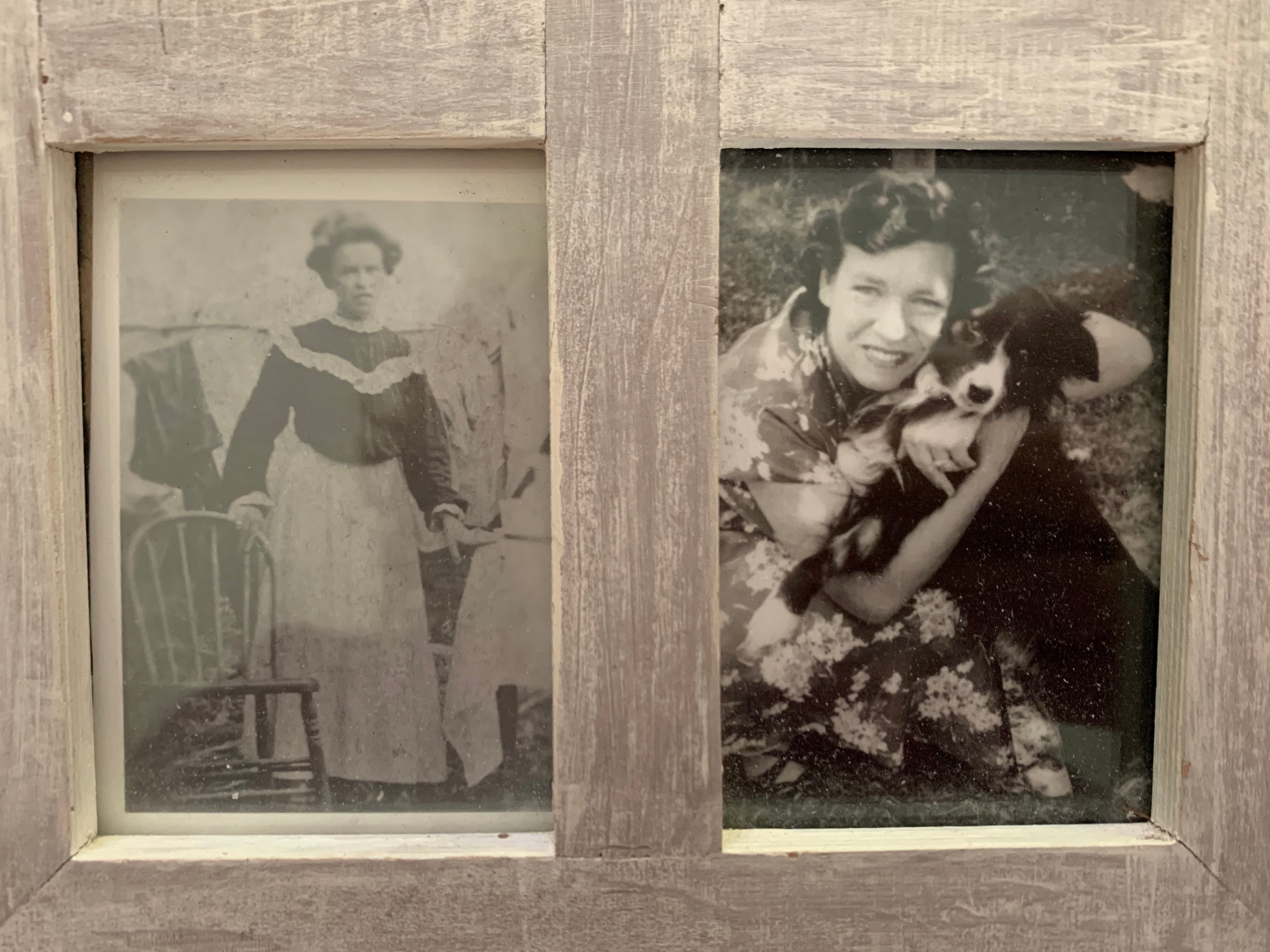
On February 1, 1919, my grandmother Eliza Ellen turned four years old. Twenty days later, influenza stole away her mother.
The third wave of the global pandemic had found its way to the woods of Monroe County, Arkansas that winter. Her mother, Marie, was 34 when she died.
Eliza Ellen and her five siblings still had a father, technically. But he was ill-equipped financially and emotionally to care for six children. He began to leave them alone for days and then weeks at a stretch. At times, grandma subsisted on soda crackers and jelly. Eventually, the state stepped in, and grandma was sent to live in St. Joseph’s Orphanage in Little Rock.
I have only one tangible record of Great-Grandma Marie’s short life: a small, grainy portrait of a young woman in a starched dress, resting her hand on a kitchen chair. A pair of trousers hang at a slant on a clothesline behind her. When I found the photo as a teenager, her face startled me; we look like sisters. At some point, I snuck this photo out of the family album and put it in a frame by my bed.
These days, Marie and Eliza Ellen often slip into my mind. A century separates the end of that pandemic to the start of this one, but history doesn’t have discrete start and end dates. Events ripple forward. What was set in motion in February 1919 laps at my ankles as I think about how to parent in 2020.
The four-year-old girl left behind survived. And then survived again and again and again, enduring traumas I hope my children never face -- and yet possessing a resilience and fierce optimism I hope I can pass on to her great-grandchildren.
Storytelling is a powerful vehicle for shaping children’s understanding of the world. According to one study, children who hear stories about how family members and ancestors overcame obstacles are more resilient in the face of challenges. The most helpful narratives reflect life’s ups and downs, and ultimately remind children that “they belong to something bigger than themselves.”
Stories give us an opportunity to see how other people navigate life’s challenges, for better or worse. In our classrooms, stories can help students see the scientists, mathematicians, and the people who occupy their history books as real people who struggled with internal and external challenges, just like we all do.
Family stories are part of our core curriculum right now. Here’s a story I have told my kids recently:
When Eliza Ellen was a teenager, she left her life in Arkansas and made her way to California, where she found a job as a waitress. One day my grandpa walked into her diner, and three weeks later they got married. She wanted a little girl of her own to dote on – to dress up in lace and shiny shoes and all pretty things she never had. After my dad was born, she was unable to have any more children, but she eventually adopted two girls from Korea who had lost their parents to the war.
I remember how she cared for stray and lost things. Her two-bedroom home sheltered a dozen cats, a few birds, and a lumbering basset hound. Every morning, she made her way around the block, feeding unwanted animals and checking in on neighbors. She liked to buy me the puffiest dresses she could find at the local department store. She couldn’t read well, but she sent her son to college and then graduate school. She didn’t drive, but she once took a dozen busses around Los Angeles hunting for the Cabbage Patch Doll I wanted for my eighth birthday.
My daughter is eight. Her middle name is Eliza, and a picture of her great-grandma hangs above her desk, looking down on her as she works on homeschool projects. My daughter has lots of questions.
“Has this ever happened before?” she asked me last week. “Have there been sicknesses that traveled around the world like this?”
“What are families doing who can’t go to work from home like you and daddy? How are they getting money?”
“Who is taking care of animals in the shelters?”
“Besides staying at home, what can we do to help?”
“What do you think I’ll tell my kids about what life was like during the coronavirus?”
In her questions, I hear echoes of my grandmothers’ stories. I also hear in her my grandmother’s empathy -- an empathy that was born in the sorrow of 1919.
My social media feed is filled with wonderful ideas for parenting during a pandemic -- schedules and websites and virtual field trips. But if I turn inward for advice, I can hear my grandmothers whispering in my ear: “Slow down. It’s okay to drop your plan for the morning and just snuggle. It’s okay that they are extra moody and needy. It’s okay that you are uncertain about the future. You are strong. They are resilient. Read silly stories. Bake cookies as often as you’d like. Tell them lots and lots of family stories. If they feel loved and connected at the end of this, you’ve done enough. You are enough.”





